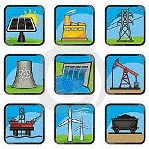Department of Agricultural Economics: Undergraduate Research

Op-Eds from ENSC230 Energy and the Environment: Economics and Policies
Date of this Version
Fall 12-23-2017
Document Type
Editorial
Citation
Op-ed from ENSC 230. Energy and the Environment: Economics and Policy, University of Nebraska-Lincoln, Department of Agricultural Economics, Fall 2017
Abstract
Most people by now have heard the terms “climate change” and global warming. Many acknowledge that it’s a problem, but they may not know how it can impact them directly. This is especially true for those living in the middle of the country, because most of the media attention goes to the coastal impacts of climate change. While putting adequate focus on the coastal impacts is a good start, since the most widespread and severe impacts will be coastal, but there needs to be more talk and discussion about the future impacts over the middle of the country. One big reason that the plains and Midwest regions get less attention than the coasts is because of the lack of population in the heartland in comparison to the massive metropolitan areas that line our coasts, and odds are they will be impacted most severely. Another barrier that should be assessed is the idea that since weather in the plains and Midwest is already so variable that a change in weather conditions from climate change wouldn’t be noticeable and/or that it won’t really change the local weather at all. I’ve heard this argument from people that have grown up and live in the Midwest and from those that live on the coasts. The reality is that the effects in the Midwest and plains will be very real and noticeable. One could argue that the Midwest is just as vulnerable or even more so because of one big reason, and that is agriculture. Our ag belt sits right in the middle the plains and Midwest, and serves as a major food source for many in the US and the world. Climate change has the potential to disrupt all of it. What do climate scientists and models have to say about the plains and climate change? According to the “Climate Change Implications for Nebraska” report, conducted by the University of Nebraska-Lincoln, precipitation events will become far more sporadic and extreme. This means that there may not be precipitation for weeks or months at a time before one large event brings a significant amount of precipitation all at once. These torrential rainfall events result in excessive runoff which can lead to flash flooding and severe erosion of topsoil. During intense rains, especially directly after a time of drought, the rain water is unable to penetrate deep into the soil so the water runs off into streams, rivers, and drainage systems. The report also predicts that temperatures across the region will continue to increase over the remainder of the century. The number of 100 degree days for the state of Nebraska alone will increase to an average of 13-25 days per summer by 2100. The number of overnight lows above 70 degrees are forecasted to increase by an astounding 20-40 days, also by 2100. These temperatures, especially the warm overnight lows, will create serious heat stress issues for corn leading to decreasing yields. This type of pattern is not at all conducive for growing a good, consistent crop. Irrigation systems may prevent significant loss during dry cycles, until the Ogallala aquifer becomes too depleted. The losses in ag from these volatile precipitation, and temperature, extremes will cause billions in crop losses in the Midwest alone. Such an event would create major economic and financial turmoil for millions across multiple states in the ag belt. Grain and meat production would reel, biofuel production would slow and become more expensive, and those that have jobs in these fields would likely suffer directly due to layoffs. The risk for the ag belt to see these extremes continues to grow and several events over the past few years have already given us a glance at what our future may look like. Climate change is here, it’s happening now right in front of our eyes. Pretending that it isn’t happening or that it won’t impact you personally is a dangerous way to go about things.
Included in
Environmental Indicators and Impact Assessment Commons, Natural Resources and Conservation Commons, Oil, Gas, and Energy Commons


Comments
Copyright 2017, Logan Winters. Used by permission